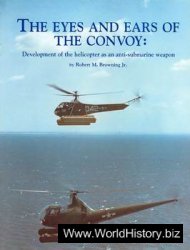We can only briefly mention here other characteristic
Elements of Henry’s metaphysical and theological system:
• The theory of human dimorphism: man alone has two substantial forms, one of which is the rational soul (Quodl. II, q. 2, after the hesitations of Quodl. I, q. 4 and the subsequent threats by Tempier and Simon of Brion).
• The essential identity between grace and glory (Quodl. IX, q. 13; cf. Arezzo 2005).
• The defense of the role of human merit in the doctrine of divine grace, at least in terms of congruity (Quodl. VIII, q. 5).
• The superiority of the active over the contemplative life, under given conditions, in the present life (Quodl. XII, q. 28).
• The relative superiority of personal over common good in the hierarchy of spiritual goods (Quodl. IX,
Q. 19).
• The formulation of a basic vocabulary of human rights (see especially Quodl. IX, q. 26 - ‘‘whether someone condemned to death can legitimately escape’’ - in which the idea of a natural right to survival seems to emerge for the first time in western thought).
• The elaboration of an authoritative doctrine of time, based on a reworking of Averroes’ theory, according to which time coincides, in its material aspect, with the continuity of motion, and in its formal aspect, with the division (discretio) applied to this motion by the numbering activity of the soul (Quodl. III, q. 11, in clear opposition to Augustine’s doctrine of time).
• The admission of a distinction between potentia ordinata and potentia absoluta in the case of the pope, and the refutation of this distinction in the case of God. For Henry potentia absoluta always indicates the possibility of acting in a disorderly way, which the pope, who is capable of sinning, possesses, but God does not (Tractatus super facto praelatorum et fratrum; cf. Porro 2003).
• The severe criticism of Aquinas’ and Giles of Rome’s doctrine of the subalternation of theological science to the science of God and the Blessed (Summa, art. 7, qq. 4-5).
• The doctrine of lumen supernaturale (“supernatural light’’), which is the prerogative of theologians only, and which makes their scientific habit superior to that of the ‘‘philosophers’’ (Quodl. XII, q. 2; Porro 2009).
Indeed, one of the central concerns throughout Henry’s career was the vindication of the absolutely scientific nature of theology. Moreover, it is the Master of Theology’s duty to give, on request, his authoritative opinion on any topic; hence the numerous questions of a pastoral, social, political, and even economic kind that make Henry’s Quodlibeta one of the richest and liveliest theological works of the entire Scholastic production (Porro 2006). Henry’s influence has been considerable, especiallY in the first decades of the fourteenth century: for instance, even though both John Duns Scotus and William of Ockham criticize many of Henry’s doctrines, they consider him to be the most authoritative master of thirteentH century Scholasticism.
See also: > Augustine > Being > Causality > Essence and Existence > GodfreY of Fontaines > Ibn Sina, Abu 'All (Avicenna) > Ibn Sina (Avicenna), Latin Translations of
> Intention, Primary and Secondary > John Duns Scotus
> Knowledge > Mental Representation > Mental Word/ Concepts > Metaphysics > Natural Rights > Parisian Condemnation of 1277 > Posterior Analytics, Commentaries on Aristotle’s > Proofs of the Existence of God
> Sense Perception, Theories of > Skepticism > Species, Sensible and Intelligible > Syncategoremata > Thomas Aquinas > Time > Truth, Theories of > Voluntarism and Intellectualism > Will > Will, Weakness of




 World History
World History









